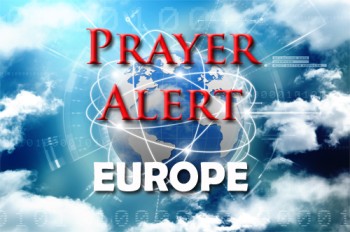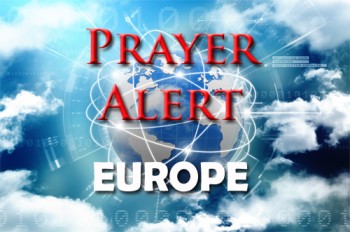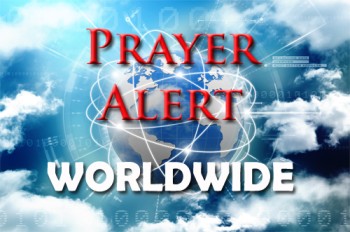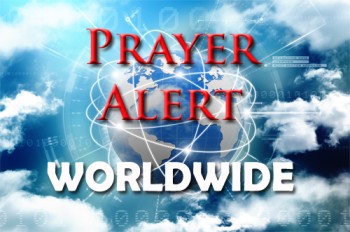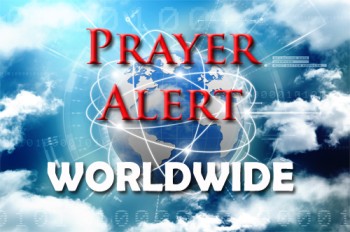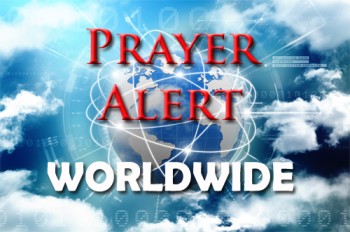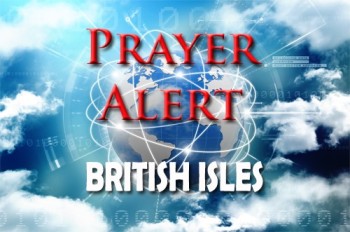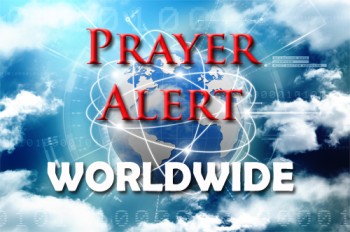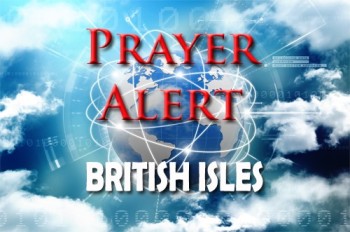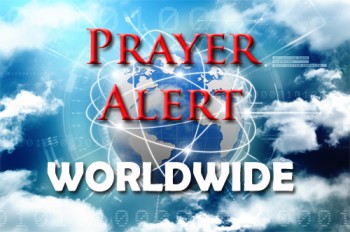Displaying items by tag: danger
Greece: five wildfires break out on Chios
A state of emergency has been declared on the Greek island of Chios as five separate wildfires, fanned by strong winds, are ravaging homes, farms, and infrastructure. The fires broke out within hours of each other, prompting the evacuation of seventeen communities. The authorities have launched an arson investigation, citing the suspicious timing and clustering of the blazes. They have caused widespread damage, destroying homes and cutting power across the island. Nearly two hundred firefighters, backed by aircraft and helicopters, are tackling the flames, with ninety more en route from Athens and Thessaloniki. Residents have joined in the firefighting effort, using buckets and makeshift equipment. This is the first major wildfire this summer for Greece, which is no stranger to devastating fires and extreme heat.
Türkiye: ‘treat Istanbul quake as a serious warning’
The recent 6.2 magnitude earthquake which struck Istanbul on 23 April is being seen as a serious warning rather than a release of seismic energy, according to Japanese earthquake expert Yoshinori Moriwaki. While the quake caused no fatalities, he warned that a larger quake, possibly over magnitude 7.0, is likely in the coming twelve to fifteen years. Istanbul lies near the North Anatolian Fault (NAF), a historically active fault line responsible for many major earthquakes across Türkiye. Moriwaki explained that the NAF, along with the South Marmara Fault, poses a continued risk to the Marmara region, with Istanbul particularly vulnerable due to soft ground in coastal districts. He urged residents not to panic but to be prepared, looking for ground stability and building regulations when choosing homes. The April quake triggered hundreds of aftershocks and follows patterns seen in destructive historical events. Despite the threat, Moriwaki remains hopeful that awareness and preparation can mitigate future damage and save lives.
North Korea: she defected, encountered Jesus, then went back
Joo Min (not her real name) once risked her life leaving North Korea to escape starvation and oppression. But then she encountered Christ in a secret safe house run by Open Doors. Raised to believe Christians were dangerous, she was initially resistant, but the love and kindness of believers transformed her. She accepted Jesus, was baptised, and underwent biblical and persecution survival training. Feeling a divine calling, she bravely reentered North Korea to spread the Gospel, knowing the immense risks. Now a leader in the underground church, she continues to share the light of Christ despite the threat of imprisonment or death. She asks for prayers for protection and courage as she serves in a land overshadowed by darkness. For other stories about Christians facing danger for their faith, order or download the Open Doors World Watch List here.
Los Angeles: winds lighten, but fires still burning
Winds in Los Angeles, which have exacerbated wildfires, were expected to intensify again on 15 January, but in fact weakened to much lighter gusts. At least 25 people have been killed and more than 12,000 structures destroyed in some of the worst fires in memory to engulf America's second biggest city. The two largest fires, Eaton and Palisades, are still burning after more than a week - and firefighting help has been sought from Mexico and Canada. Officials said there has been little to no fire growth in the last 24 hours, but stressed that unburned, dry fuel combined with low humidity could pose threats despite the decreased winds. While first responders are making progress putting out flames, evacuated residents will not be able to return to their neighborhoods for at least one more week, even for areas deemed safe. Around 82,400 Californians are under evacuation orders, according to Sheriff Robert Luna. He also said there have been 47 arrests related to looting and violations of evacuation orders.
USA: Helene was bad, Milton much worse
On 9 October Hurricane Milton hit Florida’s west coast, bringing 120 mph winds and widespread destruction. At one point a Category 5 hurricane, the Category 3 storm weakened overnight to a Category 1 storm, but not before destroying over 125 homes and knocking out power for over three million residents. Tornadoes and heavy rain have also caused significant inland damage, with storm surges threatening coastal cities such as Tampa. Officials have warned of severe flooding along rivers and lakes as Milton continues to batter the state, with nearly 100,000 people sheltering in evacuation centres. Florida officials had issued urgent evacuation orders for nearly two million people, many of whom had not recovered from Hurricane Helene. Joe Biden, calling Milton one of the most destructive hurricanes in Florida's history, has urged residents to heed local warnings.
Myanmar: landmine casualties triple
In Myanmar, the devastating impact of landmines is exemplified by Nyien, a four-year-old who lost both legs in an explosion while collecting plums. In 2023, 188 people were killed and 864 wounded from buried bombs - compared to 390 casualties in 2022. Children constitute over 20% of the victims. Unicef has described the use of landmines as ‘reprehensible and illegal’, urging all parties to prioritise civilian safety. Their use has surged since the 2021 military coup, especially in regions where resistance groups have been most active. Three countries - Syria, Ukraine, and Yemen - had higher mine casualties in 2022, and the long-term dangers posed by undetected landmines, often many years after a conflict, are considerable. Meanwhile, the opposition has claimed responsibility for a drone attack on Naypyidaw, Myanmar’s capital city: see
Northern Ireland police endangered
A member of the public made a freedom of information (FoI) request to the police, ‘Could you provide the number of officers at each rank and number of staff at each grade?’ What they received was not only a numerical table but, inadvertently, a huge Excel spreadsheet called ‘the source data, which should never have been released for public scrutiny on an FoI website. It was removed after 2½ - 3 hours once police became aware of it. Each line contains information from the top of the force down - surname and first initial, their rank, grade, where they are based and the unit they work in; including sensitive areas of surveillance and intelligence. The sensitive information exposes many in nationalist communities who were taking great care to keep who they work for a secret, in some cases even from friends and family. The scale of this error is enormous; the consequences cannot be evaluated. It is probably the worst data breach in the organisation's history.
USA: gun violence reshaping lives
As gun violence increases and shootings make headlines every few days, the fear of getting caught in one is changing the lives of millions of Americans. The shops, the schoolroom, the teenager's house party have all suffered mass shootings in recent weeks. It feels as if it could happen anywhere. 60% of adults have talked to their children or other relatives about gun safety, according to a survey by an organisation focused on health policy. Gun violence has caused some to uproot their lives and move to a different neighbourhood or city. As it has worsened, there has been a surge in demand for bulletproof backpacks for children, says the owner of a self-defence item manufacturing company. Pray for more psychiatric help to be available for children growing up in areas where gunshots are frequently heard. Pray for all schools to have a wise safety plan and provide medical training for staff.
Tens of thousands of homes unsafe
After a coroner ruled the death of toddler Awaab Ishak was caused by exposure to mould at his home, housing secretary Michael Gove said that tens of thousands of homes are ‘not in the state they should be in’. The government has now stripped the housing association involved, Rochdale Boroughwide Housing (RBH), of £1m in expected funding. Mr Gove said, ‘We are not giving money to organisations that are operating incompetently.’ Two-year-old Awaab died from a respiratory condition caused by the social housing he was living in. His family repeatedly raised concerns about mould with RBH, but no action was taken. Mr Gove said the Government ‘should have moved faster’ to improve things for social housing tenants in the immediate aftermath of the Grenfell Tower fire. Legislation in 2023 would give additional powers to housing authorities and ensure the voices of tenants were ‘heard more clearly’.
Nigeria: a dangerous society
In 2017 Fulani militants seized a Christian mother’s land and burned down her house, forcing her and her family to move closer to the city for safety. Loss of their farmland forced the family of seven into deep poverty, living and sleeping in one room. On 8 August Fulani militants attempted to rape her 16-year-old daughter while they were out walking. A missionary visited the family after the attack and the mother said, ‘They told us to stop, then they beat me as I tried to stop them from raping my daughter.’ She showed the deep gash in her arm she received from the militants, and said God used her to protect her daughter from public disgrace and shame, which is how victims of rape are viewed in their society. ‘I have nothing to say but thank God. Please tell Christians to pray for us. Pray that we will return to our village one day. Life is too expensive in the city.’
